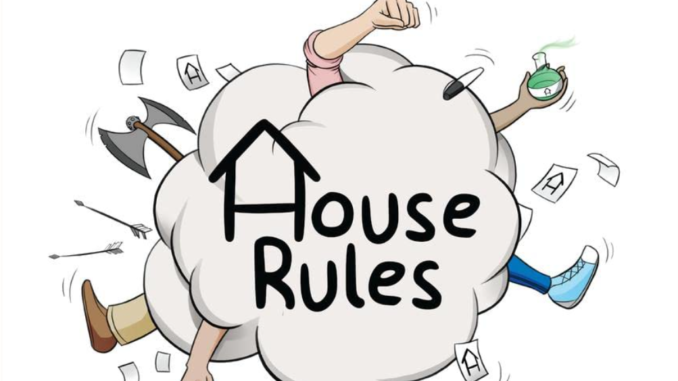
Let’s talk about a question that I see brought up pretty regularly in various Facebook groups and other groups –
“I’m new to [insert game here] and about to run my first session. What rules should I change?”
At first brush, this seems like a very innocuous question. No two tables are going to run a game the exact same way and some will go even further to address certain things that they don’t like or feel don’t make sense to vibe with their own vision of the game that they want to run. And that’s all well and fine. People like different things and have different tastes.
But I think it’s bad faith to treat it like that’s the default state that these games need to exist in. To assume that a game needs to have numerous changes made to it in order for it to be playable or fun assumes that the creators who actually designed and wrote the game didn’t do extensive testing of their own and made decisions to fit their vision. Now, not all design teams are created equal – some of them are teams of professional designers who do this as their full time job and others are a single individual making their releases in their spare time. Some of them have larger QA and editing teams and can afford to do more extensive playtesting. Someone’s first release is likely to have larger and more glaring issues than their fifth or tenth release. And yes, at the end of the day designers are human and have their own blind spots and tastes.
But all of that pales in comparison to a single fact – they’re the author of this work. They spent time conceiving, testing, and making their own changes to the rules before you even got a chance to look at the game. And if you’re brand new to the game, I think there’s some great value into running at least your first game as close to RAW as you can instead of getting several pages of table rules from people on the internet who might not even like running the same kind of game as you. You might find that your first instincts about a certain rule was wrong when the situation actually hits the table. Or maybe they were correct, and now you can continue to tweak that rule with confidence.
I like to use a metaphor of trying out a new recipe in a kitchen. If you have limited experience in cooking food, are you going to attempt to stick to the recipe or attempt to wing it? I’m willing to bet that it’s the former. And not just the first time you make it either. As you make it more, then you make changes here and there – substituting one spice for another, adding more or less of an ingredient (or even omitting one altogether). Some of these changes work. Some of them don’t. Eventually, you turn the recipe into your own, something that you truly enjoy making, eating, and serving to others.

“But what about professional chefs?” What about them indeed? They know their way around a kitchen. They understand the science of cooking and how different flavors interact with each other. They can look at a recipe and make snap judgements about it based on their years of experience. But in this metaphor, they aren’t the ones that are posting on these groups asking what changes need to be made to a game – they just make the changes based on their experience. And not to burst anyone’s bubble, but there are precious few game masters out there that can claim this kind of mastery.
Bottom line here is this – there’s nothing wrong with “rules as written” and I don’t understand why some in the hobby seem to hold the term in such disdain. It’s not a common feeling, but it’s definitely something I feel undertones of in certain discussions. And it’s through running games like this and slowly changing it to suit your table’s needs that the game truly comes into it’s own and represents what it can do. No one else’s list of table rules is going to do that for you. So embrace it as part of the process of building your campaign, no matter what your experience level as a gamer may be.
